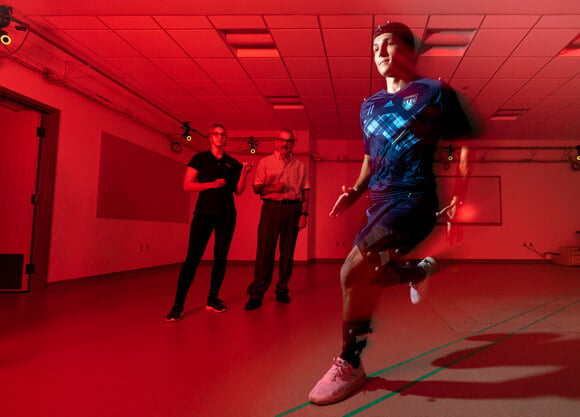Emphasize the roles of physical activity, nutrition and mental health in disease prevention and treatment with Quinnipiac's BS in Exercise Science. Designed to maximize expertise in kinesiology, human physiology and performance, you will be prepared for 21st-century careers in health and wellness, exercise and fitness.
Help people optimize their health
With increasing awareness of the importance of physical activity and wellness, there’s now a higher demand for professionals who can guide and support healthy lifestyles. Our BS in Exercise Science focuses on reducing health risk, managing chronic health conditions and disabilities, and improving quality of life to prepare you to tackle major challenges inherent in 21st-century patient care and medical research.
Lab-based classes and training sessions emphasize collaborative learning and hands-on skills assessment. Our innovative curriculum combined with a required internship gives you the flexibility to take your education straight into a career in health promotion or prepares you to apply for advanced training in clinical healthcare fields.
Graduates will have the skills and knowledge needed to stand out while pursuing various career paths, including personal training, athletic training, physical therapy, and sports nutrition.









